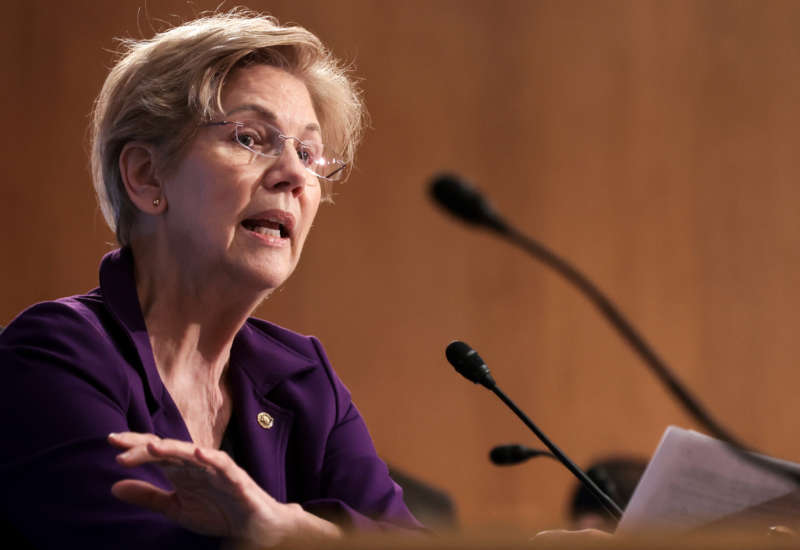Democratic lawmakers sent a letter to Education Secretary Miguel Cardona this week, asking him to detail the agency’s plan to reduce hardship and confusion as student loan payments are soon scheduled to restart.
The lawmakers, led by Sen. Elizabeth Warren (D-Massachusett), expressed concern that borrowers may not be informed about the end of the payment pause, and that borrowers could be hit with fees and other financial distress as a result.
Restarting payments will be a huge financial burden for many borrowers, especially as the economy roils in response to the pandemic and global conflict. Recent polling has found that over a third of borrowers are “not at all confident” in their ability to make student loan payments when the pause ends on May 1. Among those with student debt, 65 percent said that they will have to make “major changes to saving or spending.”
“While we appreciate the Biden Administration’s actions to extend the payment pause amid the COVID-19 pandemic, we are concerned that with less than 70 days until the scheduled expiration, borrowers may lack clarity about the timeline associated with the resumption of payments,” the lawmakers wrote. “Providing this detail is critical to ensure that borrowers are adequately informed about the restart and that borrower harm is minimized during the transition.”
Democrats praised the Biden administration for implementing a 90-day grace period for borrowers who miss their first payments after they restart, so that they won’t experience any impact to their credit. But about half of all federal student loan holders are at an increased risk of delinquency as payments resume, according to the Government Accountability office.
Many borrowers may not know that payments are resuming. The Education Department doesn’t have email addresses for about 5.5 million borrowers, and one servicer managing defaulted loans doesn’t have email addresses for about 25 percent of borrowers in default, the Democrats wrote.
There are also issues with student loans bouncing around between servicers as the pause was ongoing. Three servicers managing loans for 12.2 million borrowers announced that they would no longer manage federal student loans last year, which may cause confusion.
The lawmakers concluded their letter by demanding that the Education Department lay out its plan to restart payments. The agency should provide information about whether borrowers in default will still be in default when payments restart, and if or when borrowers can expect to experience things like wage garnishment if they’re unable to make payments, the lawmakers said.
Student loans have become a flash point for Democrats and debt advocates, who have grown increasingly frustrated with President Joe Biden’s refusal to fulfill his campaign promise to cancel student loans. Progressives like Rep. Alexandria Ocasio-Cortez (D-New York) have warned that if Biden doesn’t take action on student loans soon, Democrats could be at serious risk of losing Congress in the midterm elections.
For months, Warren and dozens of other Democratic lawmakers have rallied for Biden to cancel up to $50,000 of debt for each borrower; John B. King, the Education Secretary for former President Barack Obama, recently came out in favor of the proposal.
Other advocates of student debt cancellation, like Sen. Bernie Sanders (I-Vermont) and the Debt Collective, have urged Biden to cancel all student debt as borrowers drown in nearly $1.9 trillion in debt. Ahead of the end of the payment pause in April, activists are planning a day of action to urge Biden to “pick up the pen” and cancel debt.
Barring cancellation from Biden, however, lawmakers have asked for the Education Department to take less radical but potentially hugely impactful measures to help borrowers when payments restart. In November, Warren, Sanders and other Democratic senators asked Cardona to move the roughly 8 million borrowers who are in default on their loans out of default before payments restart. This would allow borrowers to have a fresh start, the lawmakers wrote, and could be helpful for the economy.


